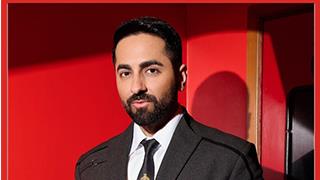Tahira Kashyap's Inspiring Instagram Message
In a heartfelt Instagram post, Tahira shared her diagnosis with raw honesty and unwavering optimism. "Seven-year itch or the power of regular screening—it's a perspective. I’d like to go with the latter and encourage everyone to get regular mammograms. Round 2 for me… I still got this," she wrote.
Her words struck a powerful chord, not only acknowledging the recurrence but also reinforcing the significance of routine health check-ups, particularly mammograms for breast cancer screening.
Transforming Pain into Power: A Message of Strength
Tahira’s signature wit and wisdom shone through her caption: “When life gives you lemons, make lemonade. When life becomes too generous and throws them again at you, you squeeze them calmly into your favourite kala khatta drink... Because for one, it’s a better drink, and two, you know you will give it your best once again.”
By tagging her post with #onemoretime, #breastcancer, and #regularscreening, she turned a personal challenge into a public call-to-action. Her journey serves as a rallying cry for women to prioritize breast health and never shy away from medical check-ups.
Revisiting the First Battle: A Journey of Grit and Advocacy
Tahira was first diagnosed in 2018 with DCIS (ductal carcinoma in situ)—an early, stage 0 form of breast cancer. The diagnosis involved high-grade malignant cells, leading her to undergo a mastectomy that same year. Instead of retreating from the spotlight, Tahira emerged as a vocal supporter of breast cancer awareness in India, speaking openly about her experience.
Her bold decision to publicly share her journey broke societal taboos and encouraged open dialogue around women's health, particularly in a country where breast cancer is still often shrouded in silence.
Empowerment Through Vulnerability: Shaved Head and Stronger Spirit
In her recent posts, Tahira shared striking images of herself with a shaved head, a result of ongoing chemotherapy. Far from being a symbol of defeat, the look exudes resilience and empowerment. Alongside the image, she wrote, "I know so many brave women who have fought with all their might. I bow my head in respect to all of them. Let everyone’s experience be a reminder to value our lives... Early breast cancer detection is curable, not just treatable."
Her words serve as a potent reminder that early diagnosis of breast cancer can significantly improve treatment outcomes. Breast cancer survival rates are substantially higher when the disease is caught in its early stages.
Why Regular Screenings Matter
Tahira’s renewed fight against breast cancer underscores a message that healthcare professionals have long emphasized: screening saves lives. According to health experts, regular mammograms can detect abnormalities long before symptoms appear, allowing for timely and potentially life-saving intervention.
Women over the age of 40 are particularly encouraged to undergo annual breast cancer screenings, though younger women with a family history or other risk factors should consult their doctors about starting earlier.
The Power of Storytelling in Cancer Awareness
Tahira’s openness continues to inspire millions. Her candid storytelling not only humanizes the experience of cancer but also empowers others to take charge of their health. By documenting her journey publicly, she’s reshaping how society views cancer survivors—not as victims, but as warriors.
Her advocacy is especially critical in a landscape where breast cancer is the most common cancer among Indian women, yet awareness, access, and timely treatment remain lacking in many parts of the country.
Conclusion: Resilience, Awareness, and Action
Tahira Kashyap’s brave announcement on World Health Day serves as both a personal update and a public service message. Her words echo far beyond her own journey—reminding all of us about the importance of health awareness, routine screenings, and the unmatched strength of the human spirit.
Her message? Don’t wait. Schedule that check-up. Get the mammogram. Talk about your health. Because early detection can save your life—and sharing your story might just save someone else’s too.




















